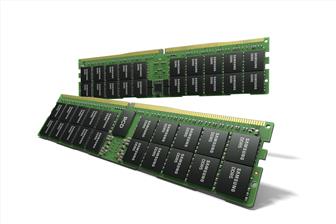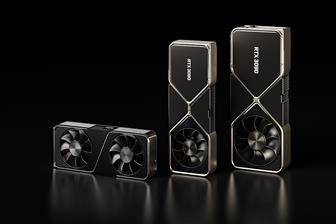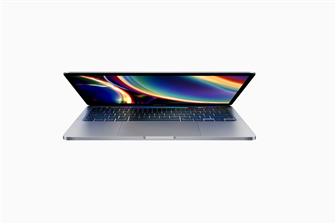
DigiTimes.com recently had an opportunity to sit down with Rambus CEO Harold Hughes.
Known as the company behind the Intel-supported RDRAM memory technology that was expected to become the standard in desktop PCs in the late 1990s, Rambus ended up losing out to the open DDR specification proposed by JEDEC.
According to Rambus, which withdrew from JEDEC in 1996, DDR and its successor DDR2, as well as the earlier SDR standard, incorporate innovations covered by Rambus patents.

Samsung HKMG DDR5
Samsung Electronics has expanded its DDR5 DRAM memory portfolio with a 512GB DDR5 module...
Photo: Company

Nvidia GeForce RTX 30 series GPUs
Nvidia's GeForce RTX 30 series GPUs are powered by the company's Ampere architecture. The...
Photo: Company

Apple HomePod mini
Apple's HomePod mini is the newest addition to the HomePod family. At just 3.3 inches tall,...
Photo: Company

Apple 13-inch MacBook Pro with Magic Keyboard
Apple has updated the 13-inch MacBook Pro with the new Magic Keyboard for an improved typing...
Photo: Company

Apple iPad Pros
Apple's new iPad Pros comes with the latest A12Z Bionic chip, an ultra-wide camera, studio-quality...
Photo: Company
- Silicon photonics set for takeoff (Oct 30) - EE Times
- TikTok founder becomes China's richest man (Nov 1) - BBC News
- Nvidia to take Intel's spot on Dow Jones Industrial Average (Nov 1) - Reuters
- Huawei's latest AI processors were made by TSMC (Oct 22) - Bloomberg
- Arm to scrap Qualcomm chip design license in feud escalation (Oct 23) - Bloomberg
- Embedded World brings 3,500 visitors to 1st US outing (Oct 11) - EE Times
- Preparing electronics engineering students for industry (Oct 8) - EETimes Europe
- Former Apple hardware chief Dan Riccio is retiring (Oct 11) - Ars Technica
![]() Microsoft's custom chip sets new industry benchmark while deepening AI partnerships across sectors
Microsoft's custom chip sets new industry benchmark while deepening AI partnerships across sectorsAs Microsoft transitions from a software giant to a cloud leader, with its cloud business now accounting...
![]() Inside TSMC: Morris Chang's Journey
Inside TSMC: Morris Chang's JourneyTSMC founder Morris Chang's second autobiography volume unveils a tapestry of milestones, including his influential comeback, rekindled alliances with...

CSP in-house development of ASIC accelerators
Google TPUs will see a share of over 70% in the in-house developed cloud ASIC accelerator market in 2024; an all-optical network...

AI chip market outlook 2023-2028: Insights from demand and supply perspectives
The growing demand for AI computational power is accelerating advancements in hardware and chip technology, necessitating innovation...

Automotive CIS tech development, 2024
The popularization of autonomous driving is boosting demand for automotive CIS with LFM and HDR being mainstream development...






